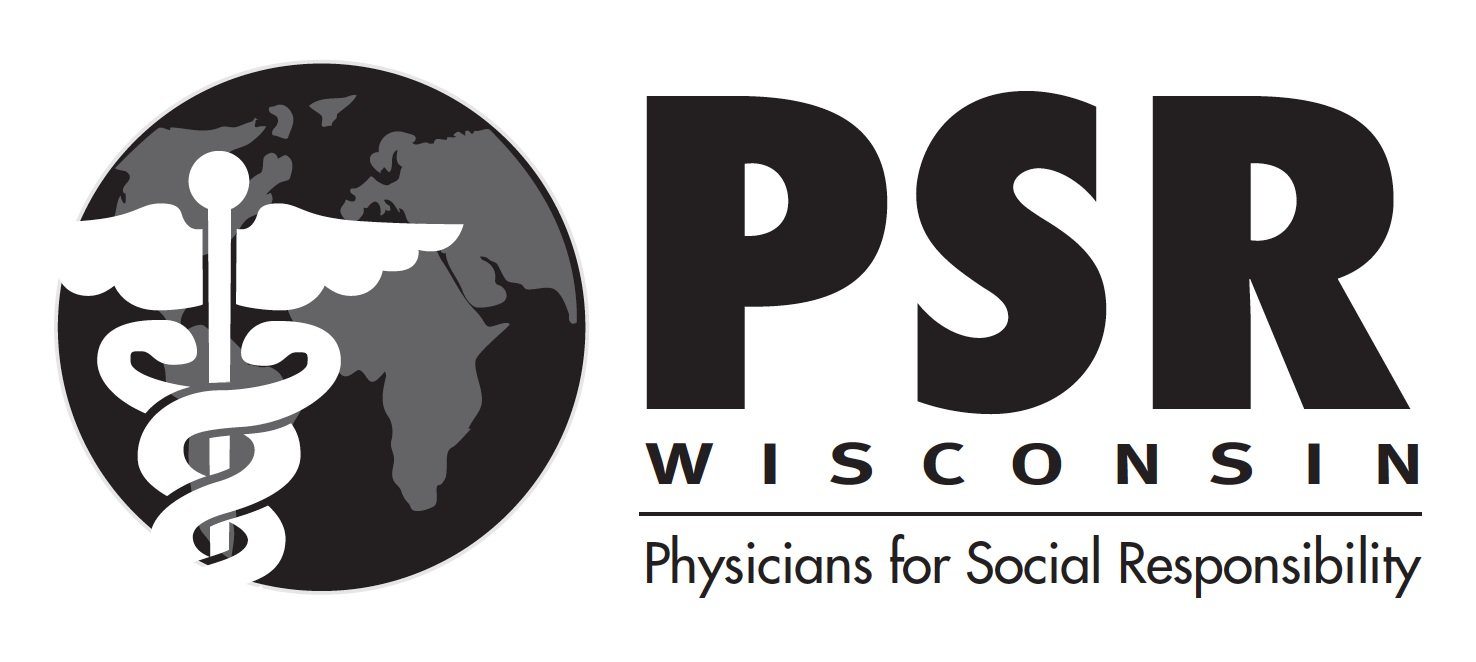History
Dr. Jeff Patterson, founding member of PSR Wisconsin, pictured on far right.
Nuclear Security
Physicians for Social Responsibility Madison was founded in 1983 after members were inspired by a talk given in Madison by a pediatrician, Dr. Helen Caldicott about the madness of nuclear war. At the time there were 60,000 nuclear weapons worldwide.
PSR WI members played an active role in convincing the City of Madison to declare itself a “nuclear free zone” in 1981. They also helped convince Madison hospitals and the University of Wisconsin Medical School to reject a Pentagon plan for civilian hospitals to treat military casualties in the event of war with the Soviet Union. The hospitals said such a war likely would become nuclear and medical treatment would be futile.
One of our founding members worked to increase trust and cooperation between the US and Russia by organizing exchanges between doctors from both countries in the 1980’s.
Since the 1980’s, PSR WI members have given countless public talks about the disastrous consequences of a single nuclear bomb detonation above Madison or Milwaukee. Our chapter has also organized numerous presentations by nuclear disarmament activists, including visits by Dr. Helen Caldicott, Dr. Ira Helfand and Dr. Bob Dodge.
PSR WI hosts a Lanterns for Peace event every August near the anniversary of the Hiroshima Nagasaki bombings to remind people of destructive potential of nuclear weapons and to envision a peaceful future.
In 2017, the United Nations passed a Nuclear Weapons Ban Treaty. Shortly afterwards, a grass roots Back from the Brink campaign was organized, calling on the US to support the UN Ban and take specific steps to prevent nuclear war. In the fall of 2018, PSR Wisconsin joined the campaign and drafted a Madison Back from the Brink resolution. The resolution included a commitment by the City of Madison to nuclear weapon free investments and contracts. It was approved by unanimous vote by the City Council in October 2023.
Climate Action
Dr. Andrew Lewandowski explains health impacts of climate change to University of Wisconsin medical residents.
PSR WI has long advocated for carbon-free energy to slow CO2 emissions and climate change. Members have spoken in the community about the health dangers of coal burning plants.
Our chapter has opposed nuclear reactor power because of safety concerns. Dr. Patterson joined Russian physicians who visited the Chernobyl area after the 1986 disaster and reported on the effects of radiation on nearby populations. Dr. Patterson also visited the area of the 2011 Fukishima- Daiichi nuclear reactor meltdowns and consulted with Japanese doctors and their patients.
PSR WI played an active role in the Carbon Free-Nuclear Free coalition which opposed repeated attempts by the state legislature to repeal the nuclear reactor power moratorium of 1983. And PSR has hosted experts such as Arjun Makhijani, president of the Institute for Energy and Environmental Research who has proposed a roadmap for transitioning from fossil fuels to clean, renewable sources of energy.
Environmental Health
PSR WI members saw the need for action around the issue of environmental health, specifically the ever-accumulating toxins in our environment that Rachel Carson warned us about. In partnership with other health professionals, environmental advocates, and conservationists, they formed the Wisconsin Environmental Health Network (WEHN) to inform healthcare providers, the public, and lawmakers about the effects of endocrine disrupters and other chemicals on public health.
WEHN organizes a “Making the Connection” conference every March which brings prominent medical professionals and environmental activists to town to speak about the effects of various environmental toxins on fetal development, child and adult health and to urge health providers to educate and advocate for their patients and communities.



